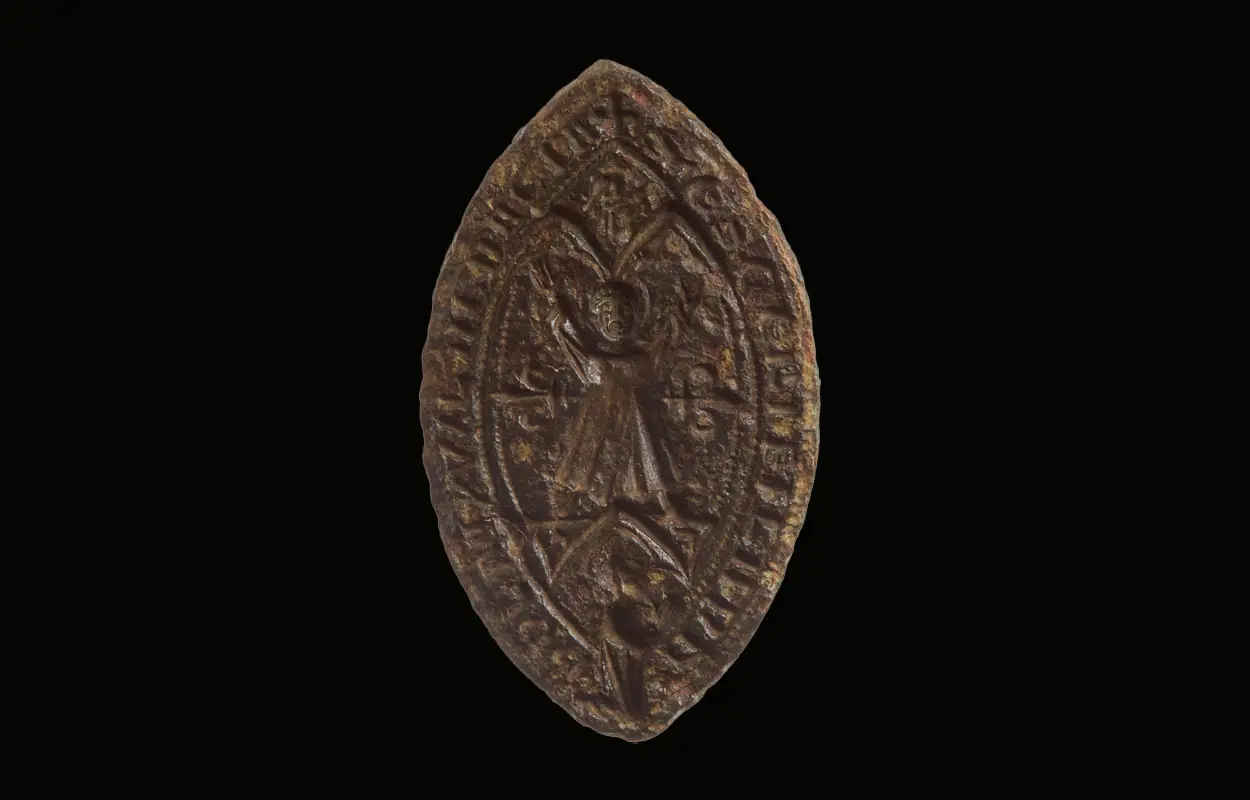A seal stamp discovered in West Jutland by detectorists once belonged to Archbishop Esger Juul.
According to experts from the National Museum and Archaeology West Jutland, the discovery is an official seal stamp used by Esger Juul who served as Archbishop of Lund in the early 14th century.
The seal was found in Store Skindbjerg Mark, Dejbjerg parish, situated between Ringkjøbing and Skjern. This finding suggests that Juul’s family may have originated from the area.
Historical records reveal that in 1310, he gifted his estates in the nearby Skast district to the canons of Ribe, and in 1312, he donated three additional farms to Ribe Cathedral.
“This discovery brings us incredibly close to a key figure from Danish history,” says Lisbeth Imer, senior researcher at the National Museum. “It’s fascinating to see how archaeology can provide new perspectives on historical figures we thought we knew well.”
Juul was appointed bishop of Aarhus (Århus) in 1306, before ascending to the position of Archbishop of Lund in 1310, a role he held until his death in 1325.
The seal prominently displays Juul’s name in Latin and features symbols that match those found on other seals linked to him. The Latin inscription reads: “S’ ESGERI FILII NICHOLAI IUUL DE DACIA,” translated to “Seal of Esger Nielsen Juul from Denmark.”
At the centre of the seal stamp is an image of Saint Francis of Assisi, the Catholic friar who founded the religious order of the Franciscans. This suggests a possible connection or affiliation between Archbishop Juul and the order not previously known from historical sources.
“This discovery highlights just how much we still don’t know about the past,” says Imer. “Each find brings us a step closer to filling those gaps, and who knows—this seal stamp might eventually lead to even greater discoveries.”
Header Image Credit : National Museum
Sources : The National Museum





